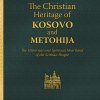Dr. Terzic is Michael S. and Mary Sue Shannon Director, Mayo Clinic Center for Regenerative Medicine, and Marriott Family Professor in Cardiovascular Diseases Research. He is professor of medicine and pharmacology; chair, Discovery-Translation Advisory Board; director, Marriott Heart Disease Research Program; director, National Institutes of Health Cardiovasology Program; and serves on the board of directors, Mayo Collaborative Services.
Focus areas
- Regenerative medicine and stem cell biology
- Cardioprotection
- Heart failure
- Genetics of cardiac disease and stress tolerance
- Bioenergetic signaling, nucleocytoplasmic communication and ion channel biology
Significance to patient care
Dr. Terzic's program capitalizes on emerging technologies to transform therapeutic modalities from palliative measures to cures. In particular, the ability to early detect for each individual the defining genetic and metabolic basis of disease risk and to personalize treatment by targeted drug- or stem cell-based repair has advanced the cardiovascular therapeutic armamentarium. Specific contributions include advancing the development of safer cardioplegia, improved drug selection in patients who have diabetes, and refinement of diagnostic and management strategies for heart failure and ischemic heart disease, prevalent in the aging population.
Professional highlights
- President, American Society for Clinical Pharmacology and Therapeutics
- Chair, Council on Functional Genomics and Translational Biology, American Heart Association
- Chair, Scientific Advisory Board, International Society for Cardiovascular Translational Research
- Martin E. Rehfuss Medal in Medicine
- Henry W. Elliott Distinguished Service Award, American Society for Clinical Pharmacology and Therapeutics
- PhRMA Foundation Excellence in Clinical Pharmacology Award
- Ueda Memorial Award, Japanese Society of Electrocardiology
- Benedict R. Lucchesi Distinguished Award in Cardiac Pharmacology, American Society for Pharmacology and Experimental Therapeutics
PROFESSIONAL DETAILS
Primary Appointment
- Cardiovascular Diseases
Joint Appointment
- Molecular Pharmacology and Experimental Therapeutics
- Medical Genetics
Academic Rank
- Professor of Medicine
- Professor of Pharmacology
EDUCATION
Research Associate - Research Associate, Cardiovascular Diseases
- Mayo Clinic in Rochester
Fellow - Clinical Pharmacology
- Thomas Jefferson University
PhD - Department of Pharmacology
- University of Illinois
Fellow - Visiting Scientist & Postdoctoral Fellow
- French National Institute of Health
Fellow - Graduate College Fellow, Pharmacology
- University of Illinois at Chicago
Internship - Clinical Center
- University of Belgrade
MD
- University of Belgrade





